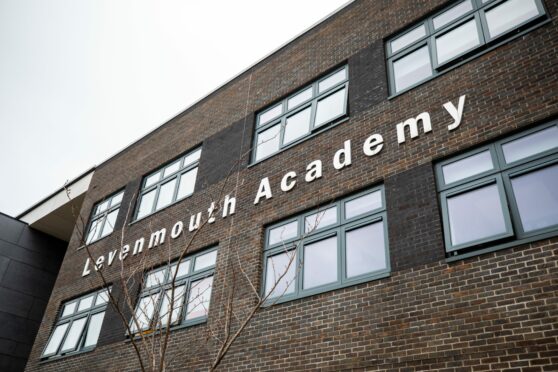Question marks over the alleged misuse of public funds by Fife College’s Students’ Association have been raised following the appointment of a new student president.
The Courier has learned that the college’s board of governors will this week receive a letter detailing deep concerns over how the association is being run amid suggestions that the way Raymond McGinty was appointed appears to contravene its operating code.
Mr McGinty was unveiled as the new student president – a post attracting a salary of £18,000 and a seat on the college’s governing body – last week following the early resignation of the winner in the recent student elections.
However, the letter to the board of governors, which has been signed by a group of previous elected officers and staff members of the students’ association, has called on college management to could conduct a formal investigation into the matter with the “utmost urgency”.
A former elected officer of the association and an architect of its constitution said the developments were “deeply concerning”.
“A student president gains their legitimacy to speak on behalf of Fife College students through being elected in free and fair elections,” he told The Courier.
“For the candidate who was rejected by students to be appointed is deeply undemocratic.
“The students’ association constitution is clear – any vacancy must be filled by a by-election.
“This constitution was ratified by a group of over 300 students at an event organised just a few years ago.
“For any part of it to change, especially such a significant part, students must be consulted.
“It is troubling to all the signatories of the letter to the board that in this situation it appears that the decision was taken by a small number of people acting with illegitimate authority.“
The latest criticism comes after the controversial merger of Adam Smith College and Carnegie College to form Fife College, and a high-profile probe which saw senior staff at Adam Smith College investigated for misappropriation of public funds and accusations of systemic bullying within the institution.
Ryan Smart, a previous student president at Adam Smith College, said: “It’s really upsetting too see the direction the association has taken.
“Incredible amounts of work were undertaken by myself and future presidents to ensure Fife College Students’ Association started in a vibrant, democratic fashion.
“It appears that this democracy hasn’t been upheld, and no longer can be called a real example of best practice.
“I hope the college will listen to the very real concerns I and others who invested so much in the association have raised and work to correct the deeply troubling mistakes which have been made.”
A Fife College spokesperson said elections for the student president post were “held in accordance with the constitution”.
“After the votes were counted, the first placed candidate was no longer able to take up the post and advised the students’ association and college of this before the term of office began,” the spokesperson added.
“Having sought advice from NUS Scotland and checking the Fife College Students’ Association constitution, the returning officer established that in these circumstances the second placed candidate should be offered the post and Raymond McGinty was declared the successful candidate.
“This is common practice at students’ associations across the UK.
“Using the recently expressed preferences of the students was the most democratic option and was the best way to ensure that the students who are starting or returning in August were not adversely affected.”










